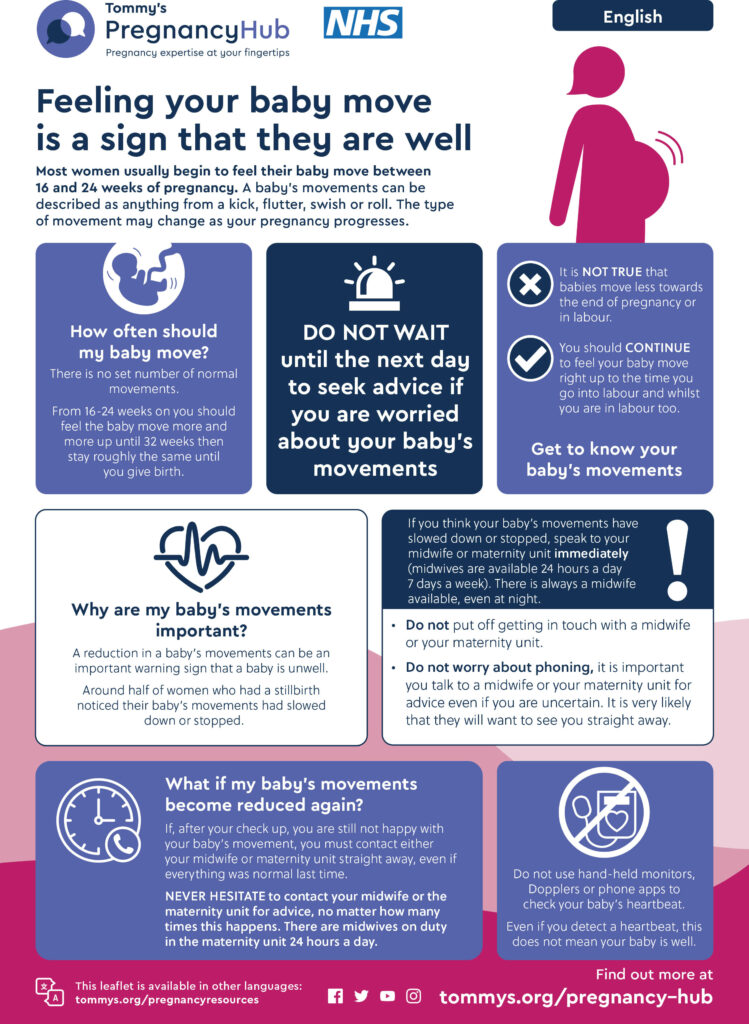Your Baby’s Movements
It’s important to keep track of your baby’s movements during pregnancy. Every baby is different, but noticing changes in how your baby moves can help you to know when to contact us for help early.
Between 18-24 weeks, you should feel your baby moving more often. After 32 weeks, their movements will stay about the same.
Every baby is different and there is no set number of movements you should feel. You do not need to count the number of kicks or movements you feel each day.
It’s important to get to know your baby’s usual movements from day to day.
Remember, it is NOT true that babies move less towards the end of pregnancy. You should keep feeling your baby move until you go into labour and your baby should even move during labour.
If your baby’s movements slow down, change, or stop, it might mean your baby is not well. In around half of stillbirths (baby dying before or at birth), the mother/birthing person noticed reduced baby movements.
Call your maternity unit right away if you notice any changes in your baby’s movements.
Do not wait until the next day or next appointment. This could save your baby’s life.
The maternity unit has staff available 24 hours a day, 7 days a week.
Maternity Triage Numbers:
Musgrove 01823 343985
Yeovil 01935 384350
Always get checked to make sure your baby is fine. If you’re still worried about your baby’s movements after a check-up, contact your maternity unit again.
Never hesitate to ask for advice, no matter how many times you need help.
NOTE: DO NOT use hand-held monitors, dopplers, or phone apps to check your baby’s heartbeat. This is not a reliable way to check your baby’s health. Hearing a heartbeat doesn’t always mean your baby is well. You should be monitored by a cardiotocography (CTG) machine or a midwife.


